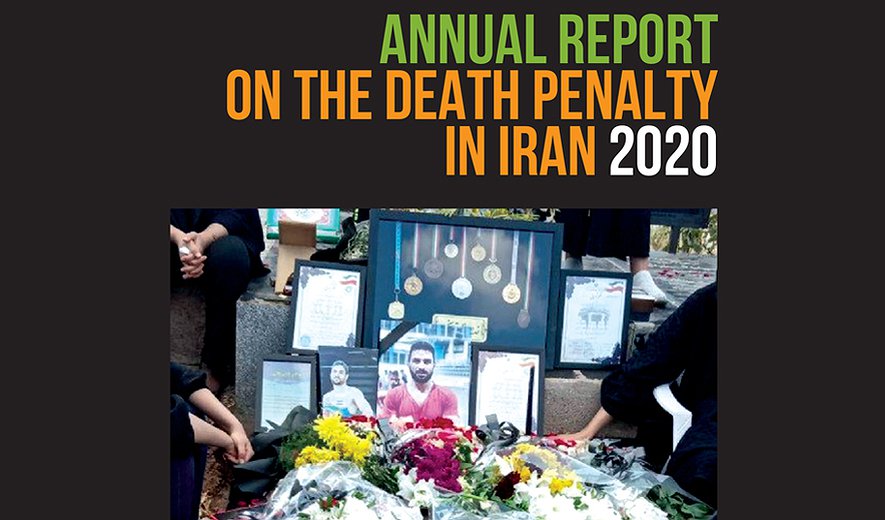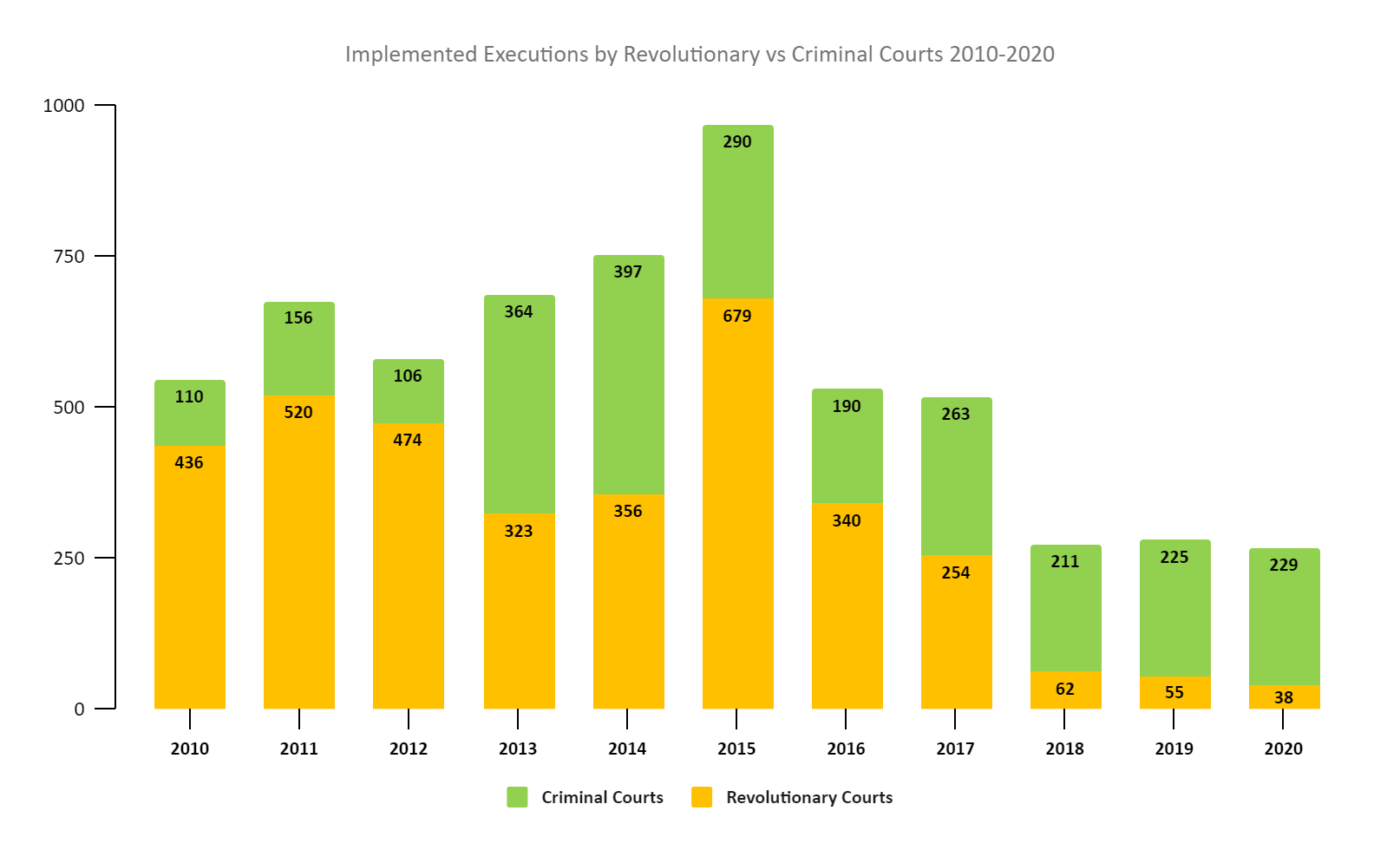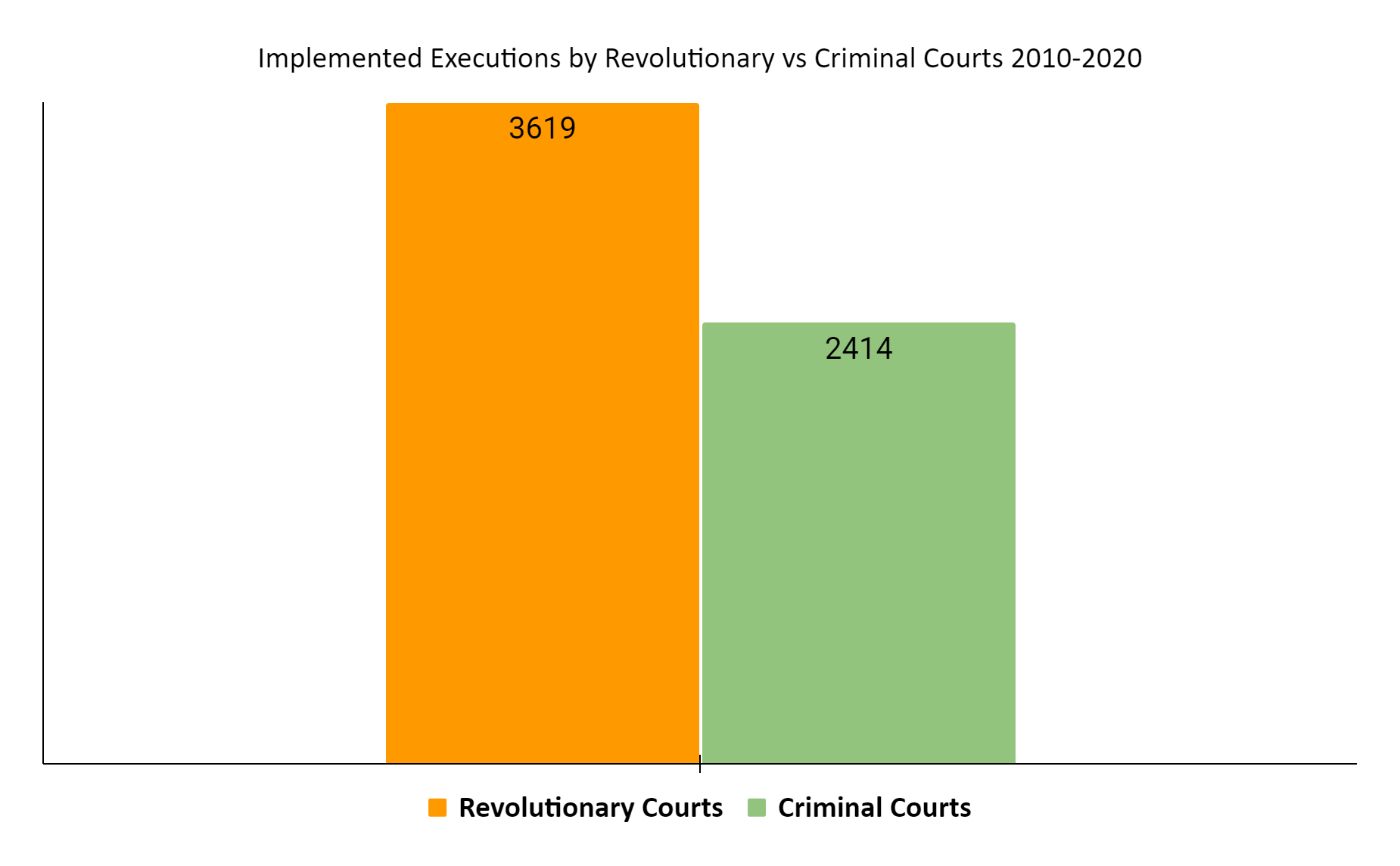Iran Report 2020: Share of the Revolutionary and Criminal Courts in Executions

Iran Human Rights (IHR); May 3, 2021: A part of the Annual Report on the Death Penalty in Iran is about the role of Revolutionary Courts in the execution in Iran in 2020.
Revolutionary Courts
Established in 1979 on the orders of Ayatollah Khomeini to try former officials of the Pahlavi Government, Iran’s Revolutionary Courts have continued to operate and are responsible for issuing heavy sentences to human rights defenders, journalists, dissidents and all those criticising the authorities. Additionally, they are responsible for the vast majority of all death sentences issued in the last 40 years.[1] The Revolutionary Courts are not transparent, and its judges are known for greater abuse of their legal powers than any other judges.[2] Revolutionary Court judges routinely deny lawyers access to individuals who are subjected to extensive interrogations under severe conditions. According to the former UN Special Rapporteur on the Situation of Human Rights in Iran, Ahmed Shaheed, who interviewed 133 people facing trial in the country for a 2014 report focused on Iran’s judicial system, 45% of those interviewed reported that they were not permitted to present a defence; in 43% of cases, trials lasted only minutes and 70% of interviewees reported that coerced information or confessions had been reportedly used by the judge or made up at least part of the evidence presented by the prosecution; some 65% of interviewees reported that the judge displayed signs of bias such as by reproaching or interrogating defendants and limiting their ability to speak and present a defence.[3] A Resolution presented at the European Parliament in 2020 set out that Iranian courts regularly fail to ensure fair trials, with the denial of access to legal counsel and denial of visits by representatives from consulates, the UN or humanitarian organisations, and allow the use of confessions obtained under torture as evidence; whereas there are no independent mechanisms for ensuring accountability within the judiciary, and serious concerns remain over the politicisation of judges, particularly those presiding over Revolutionary Courts.[4]
In a series of interviews with Hoghogh-e-ma,[5] several prominent Iranian lawyers and jurists in the country questioned the constitutionality of Iran’s Revolutionary Courts and called for their dissolution.[6]
All cases regarded as security-related, such as cases involving political and civil activists and others allegedly involved in corruption and drug-related charges, are processed by the Revolutionary Courts.
Share of the Revolutionary and Criminal Courts in executions of 2020:
As mentioned in the previous section, rape and murder (qisas) cases fall within the jurisdiction of the Criminal Courts, while cases of moharebeh, efsad-fil-arz and baghy charges, as well as the drug-related charges fall under the jurisdiction of the Revolutionary Courts. After the enforcement of the new amendments to the Anti-Narcotics law, the number of implemented death sentences issued by the Revolutionary Courts has seen a significant decrease. The following diagrams show the share of the Revolutionary Courts and the Criminal Courts in the implemented executions of the last 11 years.

At least 38 of the 267 executions in 2020 (14%) were based on death sentences issued by the Revolutionary Courts. Numbers for the previous 11 years are presented in the diagram above. This is a significantly lower percentage than in the years prior to 2018. This is due to the significant reduction in the number of executions for drug-related charges.

The diagram above is based on IHR reports since 2010 and shows that 3,619 of the 6,033 executions (59%) in the last 10 years were based on death sentences issued by the Revolutionary Courts.
The Revolutionary Courts are most infamous for the summary execution of the political opposition during the first decade of establishment of the Islamic Republic in the 1980s. However, data collected by IHR shows that even in the 4 decades following the 1979 revolution, the Revolutionary Courts have been responsible for the majority of the death sentences leading to executions in Iran.
[1] https://www.theglobepost.com/2018/02/22/iran-revolutionary-courts/
[2] https://www.theguardian.com/world/2014/jul/31/six-judges-iran-crackdown-journalists-activists
[3] https://undocs.org/A/HRC/25/61
[4] https://www.europarl.europa.eu/doceo/document/TA-9-2019-0112_EN.pdf

